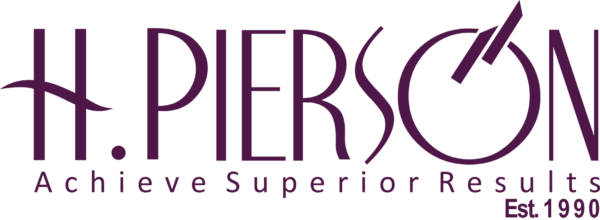2024’s Top 5 Risks—and How to Mitigate Them
March 27, 2024 Risk
As risk professionals look ahead into 2024 and beyond, there are a number of key risks they will need to monitor and prepare for. According to Aon’s annual Global Risk Management survey, the following five current risks are of greatest concern for risk professionals and business leaders in 2024, and some of the firm’s top mitigation tips:
1. Cyberattack or Data Breach
Survey respondents ranked cyberattack and/or data breach as the top risk for 2024, with 18% of respondents indicating cyber-related risks contributed to a loss for their organization in the past 12 months. After declining in 2022, ransomware attacks jumped 176% in the first half of 2023, according to the report. On a positive note, 89% said their organization had set up a plan to respond to cyberrisks. To mitigate the impact of a cyberattack or data breach, the report outlines four key strategies:
Identify and assess cyberrisk. Aon suggested collecting and examining data and insights related to any exposures and impacts to inform leaders’ decisions to mitigate, avoid or transfer cybberrisk in the future.
Mitigate cyberrisk. There is a lot that goes into mitigating cyber-related risks, including staying on top of evolving threats, which usually coincide with new technologies, and conducting organization-wide cyber-defense training to emphasize the importance of complying with cybersecurity measures.
Prepare cyber-incident response and recovery. Whether accidental or malicious, cyber incidents are unfortunately inevitable at this point. Every organization should have plans in place for incident response, containment and investigation efforts.
Transfer cyberrisk. Risk transfer is important to ensure financial resilience. In addition to traditional insurance placement, captive insurance and alternative capital are also viable approaches for some organizations to protect their balance sheets.
2. Business Interruption
Whether the cause is a natural disaster, global pandemic or political conflict, losses can be significant and put an organization at risk. With so many complex issues constantly at play, respondents identified business interruption as the second-highest risk. While business interruption claims are often out of an organization’s control, Aon offered a few best practices to help mitigate losses:
Regularly revisit and update crisis management and business continuity plans
To reduce supply chain risk, a related factor in business interruption, use multiple sources for receiving inventory
Stay in regular contact with your insurance broker to keep business interruption plans updated
Maintain any business operations you can while focusing on recovery
3. Economic Slowdown or Slow Recovery
As consumers cut back on frivolous spending or seek out alternatives to their normal purchases, organizations feel the effects of economic downturns in the form of a revenue decreases, supply chain disruptions, financing issues, and labor and staffing troubles. Banking crises and the lingering effects of the COVID-19 pandemic also contributed to the most recent economic slowdown.
Aon research shows that economic slowdowns happen about once a decade, but it is not an exact science. To brace against the impact of economic slowdowns, Aon recommended that organizations:
Increase cash reserves. If possible, focus on increasing the amount of cash your business has on hand so that it can still meet financial obligations during a period of revenue decline.
Implement strategies to minimize workforce disruptions. Conduct skills assessments and job architecture planning, for example, to provide an organization with detailed insights to identify opportunities to reskill or move employees to other areas.
Increase focus on related risks. Focusing on recovery or maintenance during an economic slowdown is great, but do not turn a blind eye to other related risks, such as cyberattacks, supply chain issues and regulatory risks.
Diversify. Switch up investment strategies, supply chains and customer bases to get the most out of your business while the economy is slowing down or recovering from a slowdown.
4. Failure to Attract or Retain Top Talent
Recruiting and retaining top talent has been a business issue for years, and that will not change any time soon. Companies are constantly struggling to balance the need for top talent with the need to be fiscally responsible, and sometimes tough choices need to be made. While recent inflation seems to be nearing its end, businesses are still reeling from the effects of a sustained period of high costs for materials and other major expenditures. As a result, hiring has either halted altogether or positions come with lower compensation packages, making it harder to reach top-tier candidates. Workers are also demanding different working conditions. For example, remote work boomed during the pandemic, and now many workers will not even consider a company requiring in-person office work, especially as many viable employees choose to live where housing is more affordable, which does not always align with where top companies are.
According to Aon, one way to ensure your organization is not missing out on recruiting and retaining top talent is to recognize increases in cost of living and improve salary packages, whether in the form of higher base salaries or stock options.
5. Regulatory or Legislative Changes
Constant activity from regulators and lawmakers impacts thousands of businesses. Organizations must stay on top of the latest changes and make sure they remain in compliance with regulations or risk hefty fines, among other potential consequences. Organizations have a few options for mitigating the impact according to Aon, including:
Set up an in-house team to track regulatory and legislative changes and implement compliance measures
Find ways to influence the development, passage and implementation of new laws and regulations and
Clearly communicate the new rules to employees
Source: Jennifer Post is an editor at Risk Management.



